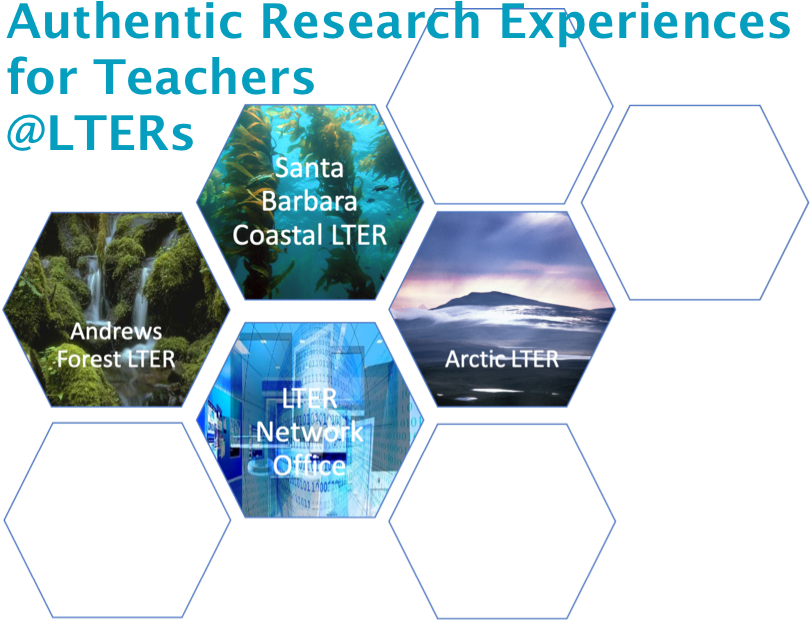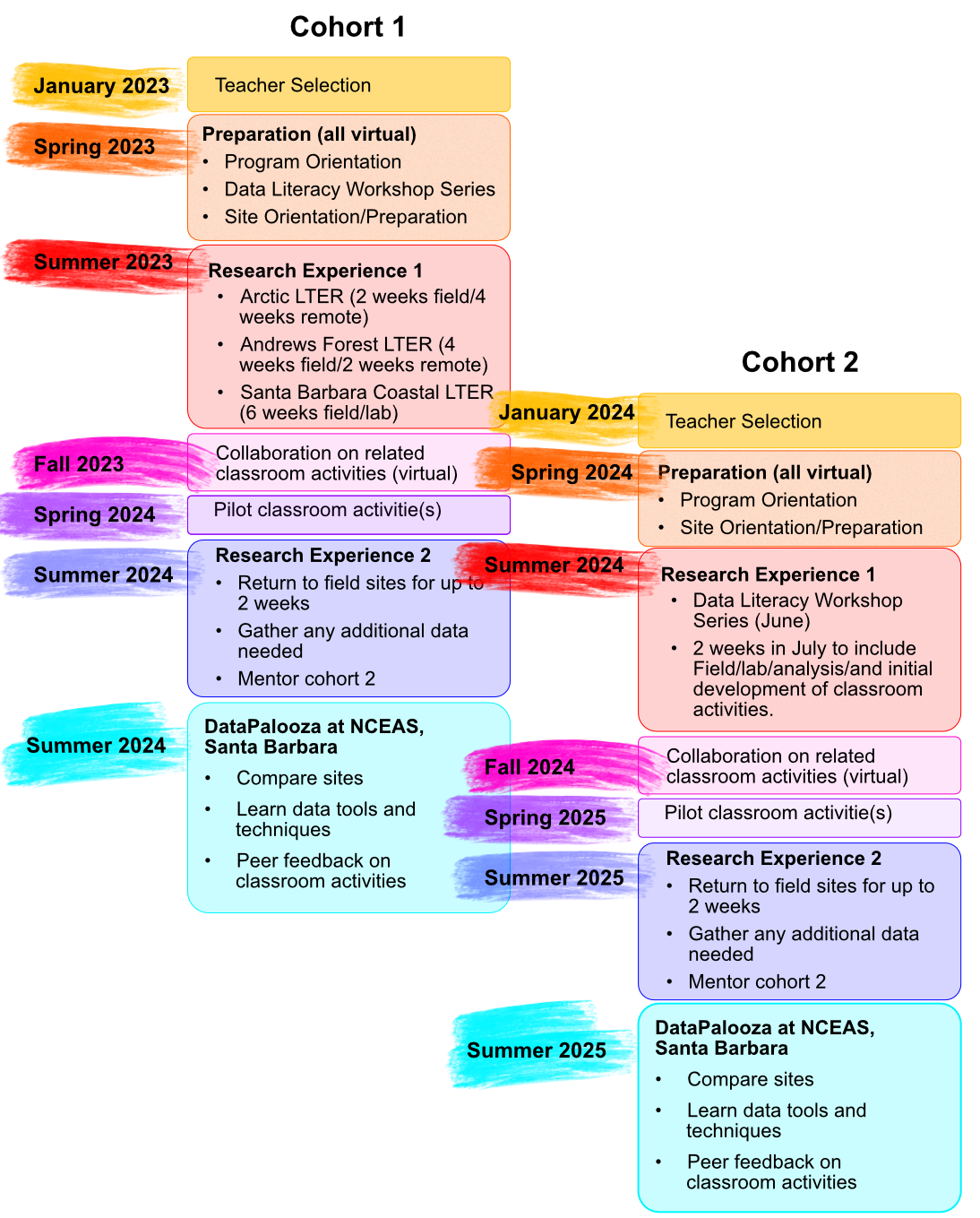
How do emerging environmental stressors such as floods, droughts, and heat waves impact local biodiversity across diverse ecosystems?
The Authentic Research Experience for Teachers at NSF’s Long Term Ecological Research sites (ARET@LTER) project engages middle school and high school teachers in conducting field and laboratory research focused on how environmental stressors affect biodiversity. These paid research experiences are open to teachers at schools with large populations of students from marginalized groups in Oregon, Milwaukee, Alaska, Santa Barbara, Santa Maria, and Ventura areas.
Selected teachers spend 2-4 weeks over two summers embedded in active research programs at one of three LTER research locations spanning diverse critical habitat types including the Arctic (Arctic LTER), temperate montane forests (Andrews LTER), and marine coastal ecosystems (Santa Barbara Coastal LTER). Teachers will have the opportunity to work on established projects and will broaden their understanding by comparing notes with colleagues stationed at other LTER sites. The summer research experiences will form the basis of new classroom activities developed and piloted during the intervening school year.
Like the idea of digging into real-life science in the summer?
Four teachers will be stationed at each of three sites, forming a cohort of 12 teachers in year 1 (2023) who will be joined by another 12 teachers in year 2 (2024). Learn more about the schedule and plans on the participate page.
An in-person experience at the National Center for Ecological Analysis and Synthesis (NCEAS) will further involve teachers in the practice, process, and community of today’s networked and data-intensive science. Teachers will engage their students in authentic science learning activities based on their RET experience and develop a Data Nugget or lesson plan, which can be used by any of the RETs in the project. There is also potential for publishing and presenting on classroom products through the freely available Data Nuggets website and other national outlets.











